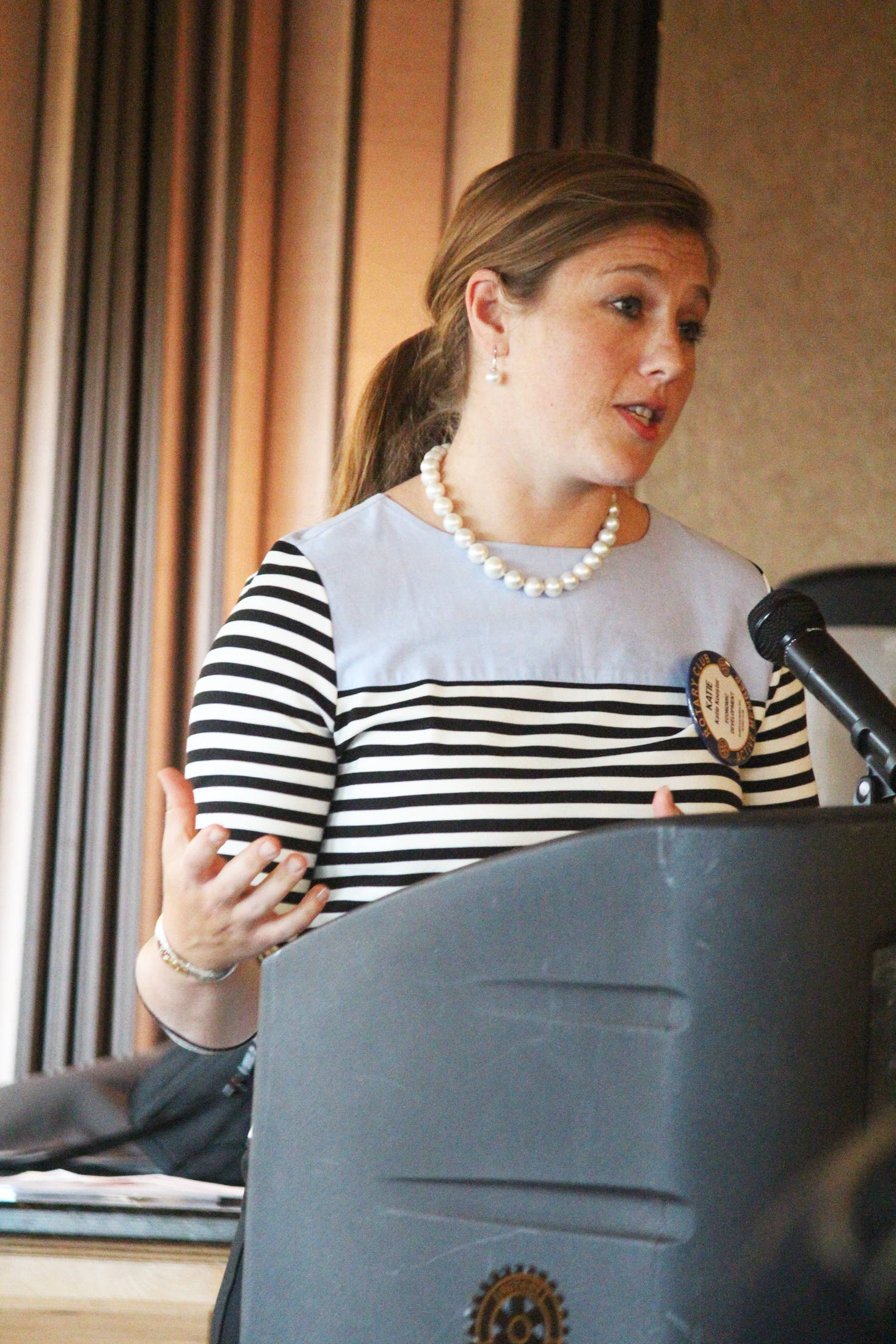On Oct. 3, city of Homer voters not only select two new council members, they will consider a change to city code that gives the council and City Manager Katie Koester a new tool to balance the budget.
Voters can vote for two candidates for two, 3-year council seats, and also will be asked to vote yes or no on Proposition 1. That proposition changes the city code for the Homer Accelerated Roads and Trails, or HART, program to allow revenues from a 0.75-percent of the overall 4.5-percent sales tax to be used not just to build or improve roads and trails, but to maintain them.
“The thought was ‘be smart with HART,’” Koester told the Kachemak Bay Rotary Club in a presentation last Thursday. “The council feels like it’s an extension of the original intention of HART.”
In a unanimous vote in March, the council agreed to put the question to the voters. A “yes” vote supports using HART funds for maintenance. A “no” vote keeps the status quo and allows HART funds only to be used for new roads and trails or projects like paving gravel roads. HART funds also can be used for neighborhood road projects, called Special Assessment Districts, or SADs, property owners approve. HART pays 75 percent of SAD costs and property owners pay 25 percent. The fund now has a balance of $5.2 million. Recent projects supported by HART include the Grubstake Road extension, new Karen Hornaday Park trails and sidewalks along Soundview Avenue.
In 2016, voters approved a 3-year suspension of HART tax revenues to pay for general government that helped fill a $1.2 million gap between revenues and a budget that did not reduce major services. That suspension runs out in the 2019 tax year. Prop 1 would not continue the suspension. Essentially it would shift road and trail maintenance now paid for out of general revenues to be paid for out of the HART tax. It would not create a new tax or increase sales taxes, keeping the sales tax at 4.5 percent.
The 0.75-percent HART sales tax raises about $1 million to $1.2 million a year depending on overall sales tax revenues. In 2016, it earned $1.1 million for roads and $128,000 for trails, according to Jenny Carroll, special projects and communications coordinator. According to a fact sheet from the city, about $504,000 is paid annually for HART capital improvement projects now authorized under the program, such as the Greatland Street extension. For 2016 HART revenues, that would leave about $780,000 available for road and trails maintenance if Prop 1 passes.
Road and trails maintenance under Prop 1 would include snowplowing, street cleaning, pothole repairs, dust control, gravel purchase, pavement striping, signage, purchase of road and trail equipment and tools, trail clearing and sweeping, and trail head maintenance. The 2017 budget for such maintenance is about $700,000.
The council also voted to approve spending campaign money to push for a “yes” vote on Prop 1, and it’s the city’s official position to vote in favor. Of the seven council candidates actively running, most have said they favor Prop 1. Kimberly Ketter has been the most outspoken opponent of Prop 1.
“I’ll be voting ‘no’ on Prop 1 because it’s too questionable,” she told the Homer News in her answer to the question last week. At a KBBI-Homer News candidate forum held last Thursday, she reiterated that opposition, saying, “I see it as a way to take our roads, our trails funds.”
Candidate Dwayne G. Nustvold Jr. initially seemed to oppose HART. “I don’t want to take funds from anywhere,” he told the Homer News. At the forum, he later said he would vote “yes.”
“That’s a tough one,” he said. “I don’t like it, but it would take the least bite out of people.”
The HART fund is subject to approval by voters every 10 years, and was last approved in 2007. It comes up for approval again in 2027. If Prop 1 passes it would become effective upon approval.
Reach Michael Armstrong at michael.armstrong@homernews.com.


